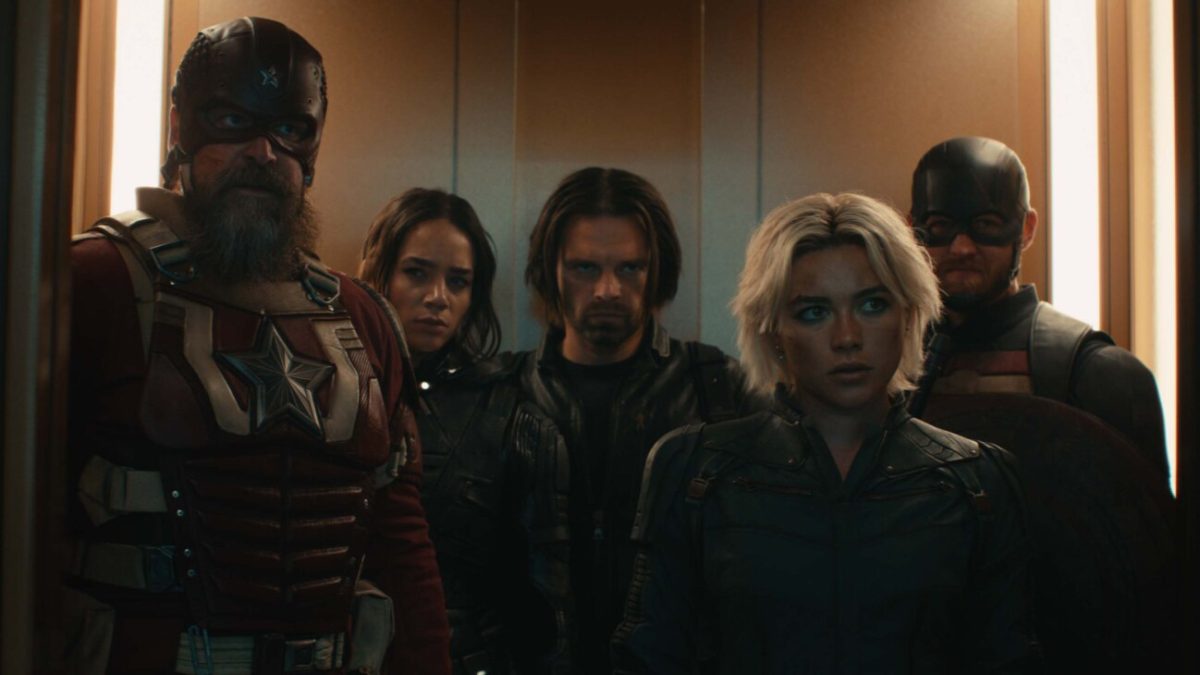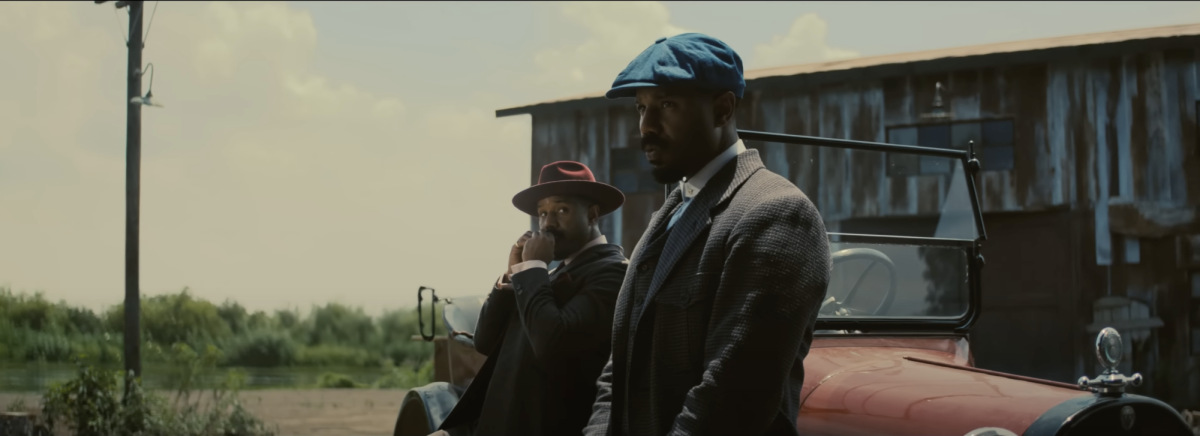For anyone who’s seen a horror movie or a season of “American Horror Story,” “Saltburn” could be considered tame.
Writer and director Emerald Fennell’s “Saltburn” (2023) follows Oxford student Oliver Quick (Barry Keoghan, “The Eternals”) and his lurid fascination with peer Felix Catton (Jacob Elordi, “Euphoria”). His infatuation quickly morphs into a dark obsession with Felix’s wealth, family and ancestral manor home of Saltburn.
The film made viral rounds online with people recording their family and friends’ reactions to certain visceral and supposedly “traumatizing” scenes. These two scenes (one including a bathtub, the other including a patch of dirt in a graveyard) were certainly eyebrow-raising, off-putting and arguably just plain gross, but were they shocking?
As it turns out, the notorious graveyard scene in question was improvised, which definitely adds to its gravity.
“What happened, you know, happened, and it was one take. And yeah, I think it was right. It moved the story forward,” Koeghan said, in an interview with Deadline at the Golden Globes.
Without describing exactly what the scene entailed, let’s just say what Koeghan did was a choice. Call it commitment to character, method acting, genius or insanity–it was certainly something.
The majority of the film is set in Northamptonshire, England, at the Catton family’s stunning and sprawling medieval mansion, Saltburn. Felix invites Oliver to join him at the mansion on holiday after learning that Oliver’s father has passed suddenly and unexpectedly.
Oliver’s father’s passing is just one of many life woes he shares with Felix. His mother is also a drunk, he’s poor, and he’s only at Oxford because of a scholarship. So he says.
Oliver slowly and deliberately weaves himself into the fabric of the Catton family through whatever manipulations necessary. He seduces Felix’s sister, Venetia (Alison Oliver) and cousin, Farleigh (Archie Madekwe) and charms his mother, Elspeth (Rosamund Pike).
His motives for doing so seem to be intentionally muddy. Is he in love with Felix? Does he want to take his place as the beloved son of the Catton family? Is he just painfully lonely, depressed or traumatized from some great injustice done to him in his youth? Does his motive for what he inevitably orchestrates really matter?
Venetia Catton describes Oliver’s motives as succinctly as director Fennell will allow (prior to the final scenes, when Oliver describes them himself):
“I think you’re a moth. I’m right, aren’t I? Quiet, harmless, drawn to shiny things, batting up against the window, just desperate to get in. Well, you’ve done it now. You’ve made your holes in everything. You’ll eat us from the inside out.”
And boy, does he.
“Saltburn” makes no clear grand statements about the world or morality or politics, other than perhaps a nod to the chasm created between wealth and empathy. However, there are some well-planned visual metaphors pertaining to Oliver’s insect-like behavior that act as clever foreshadowing throughout.
For instance, Oliver is repeatedly depicted above or on top of people in the family. Whether he’s on a balcony and they’re all below him, lying on top of them in a bed (or on their grave), he is above, sucking out their life force in one way or another, like a leech. The visual impact of these scenes is an understated and effective way of illustrating Oliver’s sinister intentions.
The cinematography and soundtrack of the film are the best parts. The colors are vivid, the scenes are shot from thoughtful, unusual angles and the soundtrack pairs effortlessly with the lush and vibrant setting. MGMT’s “Time to Pretend” was especially apt for encapsulating the montage of overindulgence it accompanied.
While “Saltburn” is no feat of storytelling nor a grand masterpiece, it is evocative and fun. Koeghan’s intensity is hard to look away from, and every line Rosamund Pike delivers as mother Elspeth hits the funny bone.
There is one gnawing question the movie provokes: is it written in Jacob Elordi’s contract that every project he stars in has to have a minimum of one scene with strobing neon lights?



















